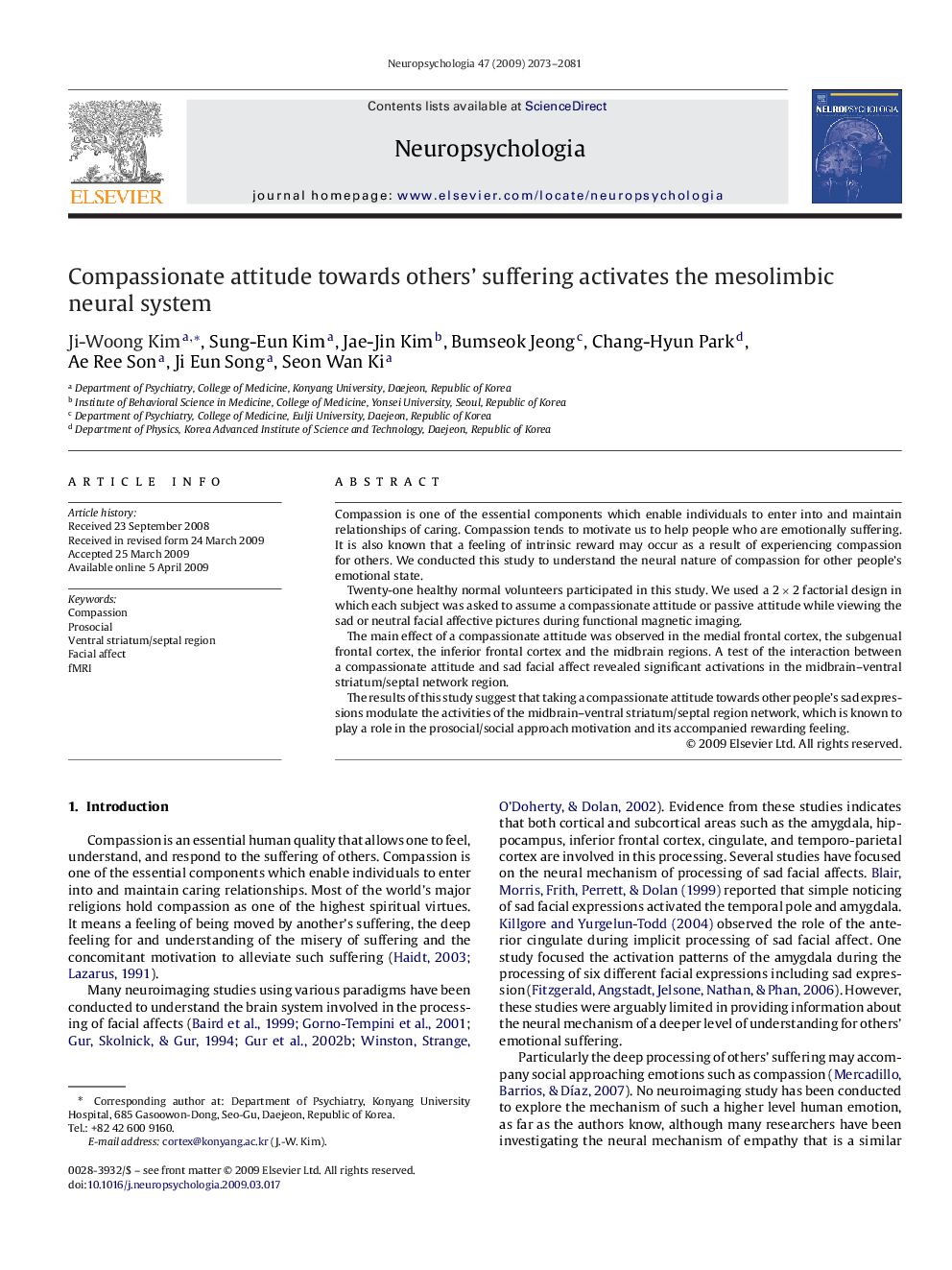| Article ID | Journal | Published Year | Pages | File Type |
|---|---|---|---|---|
| 945233 | Neuropsychologia | 2009 | 9 Pages |
Compassion is one of the essential components which enable individuals to enter into and maintain relationships of caring. Compassion tends to motivate us to help people who are emotionally suffering. It is also known that a feeling of intrinsic reward may occur as a result of experiencing compassion for others. We conducted this study to understand the neural nature of compassion for other people's emotional state.Twenty-one healthy normal volunteers participated in this study. We used a 2 × 2 factorial design in which each subject was asked to assume a compassionate attitude or passive attitude while viewing the sad or neutral facial affective pictures during functional magnetic imaging.The main effect of a compassionate attitude was observed in the medial frontal cortex, the subgenual frontal cortex, the inferior frontal cortex and the midbrain regions. A test of the interaction between a compassionate attitude and sad facial affect revealed significant activations in the midbrain–ventral striatum/septal network region.The results of this study suggest that taking a compassionate attitude towards other people's sad expressions modulate the activities of the midbrain–ventral striatum/septal region network, which is known to play a role in the prosocial/social approach motivation and its accompanied rewarding feeling.
